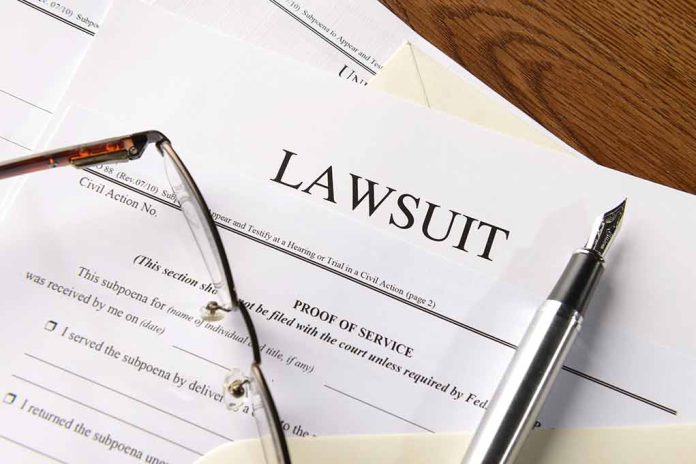
While entertainment giants Disney and Universal sue Midjourney for copyright infringement, two smaller AI studios are quietly revolutionizing the industry with legally compliant content production models that could save Hollywood from itself.
Key Takeaways
- Gennie and Toonstar are pioneering legally compliant AI content production while major studios battle with copyright lawsuits against AI companies
- Gennie’s “Pillars of Protection” framework and Toonstar’s strategic partnerships demonstrate viable paths for ethical AI use in entertainment
- Disney and Universal’s lawsuit against Midjourney marks the first major legal action by Hollywood studios against AI firms, with experts predicting “tectonic” impacts on future litigation
- Both smaller studios avoid legal scrutiny through meticulous documentation, transparent workflows, and strict avoidance of copyrighted material
- These ethical approaches to AI content creation establish a potential industry standard that balances innovation with legal compliance
David vs. Goliath: Small Studios Lead in Ethical AI
As entertainment giants Disney and Universal engage in a high-stakes legal battle against AI company Midjourney for copyright infringement, two smaller studios are quietly demonstrating how artificial intelligence can be ethically integrated into content production. Gennie and Toonstar have developed innovative frameworks that prioritize legal compliance while still harnessing AI’s creative potential. Their approach stands in stark contrast to the contentious legal landscape facing larger AI firms, providing a potential roadmap for the industry’s future under President Trump’s administration, which has emphasized both technological innovation and intellectual property protection.
“Our goal is to put accurate history on screen and reduce the risk that typically comes with using generative tools,” said Einhorn. “We’re building a system where legal and creative standards can co-exist.”
Hollywood’s AI Legal Battleground
The lawsuit filed by Disney and Universal against Midjourney represents the first major legal challenge from Hollywood studios against AI companies. The entertainment giants accuse Midjourney of using their copyrighted characters and content to train AI models without permission or compensation. This legal action joins a growing number of lawsuits from artists, photographers, and media companies against AI firms, signaling a powerful pushback against unauthorized use of intellectual property. The case is expected to have far-reaching consequences for how AI companies operate and how creative content is protected in the digital age.
Gennie’s “Pillars of Protection” Model
Founded in 2024, Gennie has quickly established itself as a pioneer in ethical AI content creation. The studio recently premiered “Killer Kings” on Sky History, a docuseries that incorporates AI-generated visual reenactments while adhering to strict legal guidelines. The company’s comprehensive “Pillars of Protection” framework includes detailed prompt documentation, exclusive use of indemnified AI tools, and specialized insurance coverage for AI-related risks. This systematic approach to compliance has allowed Gennie to navigate potential legal pitfalls that have ensnared companies like Midjourney while still producing compelling content.
Toonstar’s Strategic Innovation
Founded in 2015, Toonstar has evolved to become a leader in AI-enhanced animation, recently securing representation by prestigious talent agency WME and announcing a collaboration with comedian Nigel Ng. The studio’s popular series “StEvEn & Parker” draws over 30 million weekly views by leveraging AI voice cloning technology within carefully constructed legal boundaries. Toonstar employs proprietary tools like Ink & Pixel and SPOT to accelerate animation production while maintaining strict internal guidelines against referencing public figures or copyrighted material without proper authorization.
The Future of AI in Entertainment
The contrasting approaches of large AI companies facing litigation and smaller studios proactively implementing ethical frameworks highlight a critical crossroads for the entertainment industry. Legal experts are closely monitoring the Disney-Universal lawsuit against Midjourney, with many anticipating landmark rulings that will shape AI’s future in content creation. The timing of the lawsuit has raised questions about the studios’ own AI ambitions, with some suggesting they may have delayed action until gaining clarity on fair use guidelines from the Copyright Office’s recent report on AI large language models.
“Why now?” questioned Glenn Pudelka, a partner at Troutman Pepper Locke. “I think that everybody’s … waiting with bated breath, and I think the report helps. So I think now we’re just going to have to wait and see, and get your popcorn ready.”
A Conservative Path Forward
The ethical frameworks pioneered by Gennie and Toonstar align with conservative values of responsible innovation, respect for intellectual property rights, and free market solutions to complex problems. By establishing transparent processes, maintaining appropriate documentation, and forming strategic industry partnerships, these smaller studios demonstrate how AI can enhance creativity without undermining the livelihoods of content creators. Their approach offers a compelling alternative to both heavy-handed regulation and unchecked exploitation of copyrighted materials, providing a model that respects tradition while embracing technological progress.










